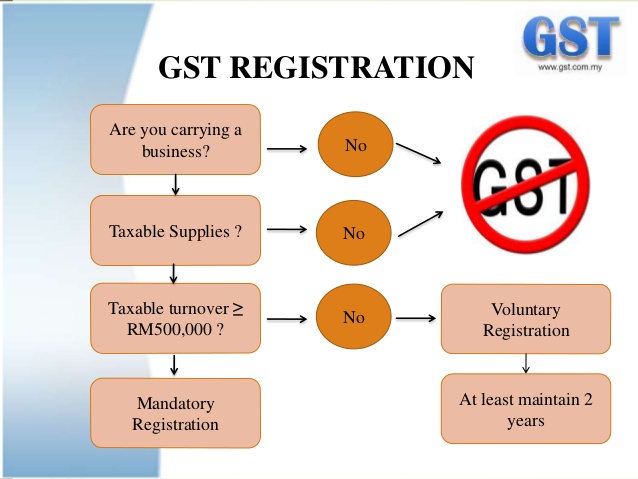Improving Your Singapore GST Registration: An Extensive Technique
Improving Your Singapore GST Registration: An Extensive Technique
Blog Article
The Ultimate Overview to Streamlining the GST Enrollment Process and Requirements for Local Business Owners

Comprehending GST Essentials
To understand the principles of the Item and Solutions Tax Obligation (GST) system, tiny business proprietors should initially understand its underlying effects and principles. GST is a value-added tax imposed on many goods and services for residential consumption. It aims to simplify the taxes procedure by replacing multiple indirect tax obligations enforced by the state and central governments. Under the GST regime, businesses are called for to accumulate and register tax obligation in support of the government, guaranteeing openness and conformity.
One of the key principles of GST is input tax obligation credit, which permits services to claim credit score for taxes paid on their purchases. Understanding these fundamental principles is crucial for tiny company proprietors to browse the complexities of the GST system and guarantee compliance with the law.
Eligibility Requirements for Enrollment
Having established a foundational understanding of GST concepts, local business owners should now fulfill specific eligibility requirements to wage the registration procedure. In India, entities engaged in the supply of products or services with a yearly accumulation turn over going beyond Rs. 40 lakhs (Rs. 10 lakhs for unique group states) are required to sign up for GST. Additionally, certain companies such as those associated with inter-state supply of goods, informal taxable individuals, and those needed to pay tax obligation under the reverse fee system must sign up for GST irrespective of their turn over. In addition, businesses that were registered under the previous tax obligation routine (BARREL, service tax obligation, etc) are likewise mandated to register under GST. However, farming companies that only supply create out of primary production are exempt from GST registration. It is essential for company owner to very carefully examine their eligibility based on these requirements to ensure conformity with the law and stay clear of any charges for non-compliance.
Files Required for GST Registration

Simplified Registration Process Steps
Complying with the collection and verification of the requisite records, the registration process for GST can be navigated via a collection of streamlined actions made to assist in reliable compliance for local business owners. The very first step includes visiting the GST site and selecting the 'New Enrollment' choice. Subsequently, the applicant has to fill out Part A of the GST REG-01 kind with information such as PAN, mobile number, and e-mail address to get an OTP for confirmation. When the OTP is gotten and gone into, a Momentary Recommendation Number (TRN) is produced for further procedures. The next step calls for completing Part B of go to my blog the kind with needed service details, posting supporting files, and completing the verification process using DSC or EVC. Upon effective confirmation, an Application Referral Number (ARN) is issued, suggesting the completion of the GST registration process. By complying with these streamlined steps, small company owners can properly sign up for GST and make certain conformity with tax obligation laws.
Tips for Ensuring Compliance
To keep governing adherence and functional honesty, persistent oversight and positive measures are essential in making certain compliance with GST needs for tiny company proprietors. Small organization owners need to stay upgraded with GST policies, filing target dates, and any useful reference type of modifications in tax rates to avoid charges and keep a good standing with tax authorities. Participating in GST awareness workshops or training programs can boost understanding and conformity with GST regulations, eventually benefiting the company in the long run.
Conclusion
To conclude, local business proprietors have to recognize the fundamentals of GST, satisfy the eligibility requirements, collect required documents, and comply with the simplified registration process actions to guarantee conformity. By streamlining the GST enrollment process and needs, tiny organization proprietors can prevent penalties and run their organizations smoothly within the lawful framework - Singapore GST Registration. It is crucial for tiny company owners to stay compliant and informed with GST regulations to maintain an effective organization procedure
Little business owners looking for GST registration should ensure they collect and submit the required papers to finish the enrollment process successfully. The files needed for GST registration typically include evidence of business enrollment or incorporation, PAN (Long-term Account Number) card of the company entity, identification and address proof of the promoters/partners/directors, photographs, address evidence of the location of service, financial institution check here account declarations or canceled cheques, and authorization forms. Participating in GST understanding workshops or training programs can boost understanding and compliance with GST regulations, ultimately benefiting the organization in the lengthy run.
By simplifying the GST registration process and demands, little business owners can avoid charges and run their companies efficiently within the legal framework. It is essential for little business proprietors to remain educated and compliant with GST regulations to keep an effective business operation.
Report this page